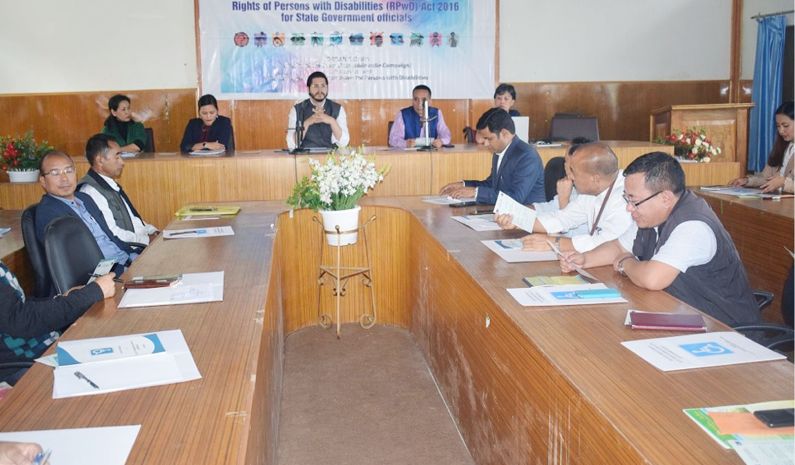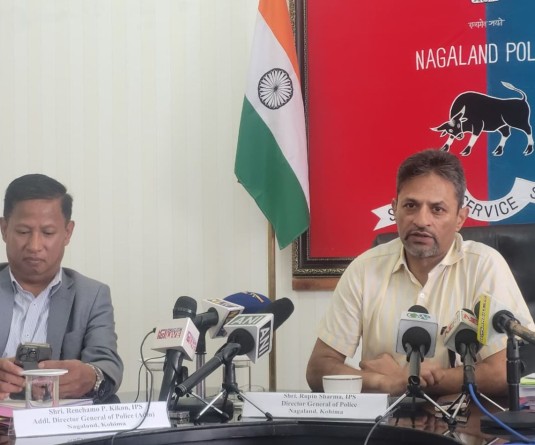Sensitisation campaign on RPwD Act held in Wokha

Attendees at the sensitisation and awareness campaign on Rights of Persons with Disabilities (RPwD) Act 2016 for Head of Offices under Wokha district held at the DC’s Conference Hall on October 22. (DIPR Photo)
Wokha, October 23 (MExN): A sensitisation and awareness campaign on Rights of Persons with Disabilities (RPwD) Act 2016 for Head of Offices under Wokha district was held at the DC’s Conference Hall on October 22.
The programme was organised by Mission Mode Team (Accessible India Campaign-AIC) in collaboration with the Office of the State Commissioner for Persons with Disabilities (PWDs) and chaired by DC, Wokha, Dr Manazir Jeelani Samoon IAS.
Speaking on the occasion, Secretary to the Government of Nagaland & Team Leader, Mission Mode Team (AIC), K Libanthung Lotha while highlighting its role and the responsibility informed that the primary focus was to sensitise and create awareness among all the stakeholders, (both government servants and NGOs) in the state to be an agent for successful implementation on RPwD Act 2016.
The AIC is a part of RPwD Act 2016 and is a national flagship programme launched by the government of India to achieve universal accessibility for PWDSs.
The three components accessibilities are inbuilt environment, transportation system, and information &communication eco-system, he said, adding that there is also direction from the Supreme Court of India to implement RPwD with this obligation.
The Mission mode Team (Accessible India Campaign) for Nagaland state was established on February 5, 2019.
Libanthung further informed that Wokha is the third district where the team is conducting the campaign and it would continue in all the other districts.
The AIC mode team has inspected twenty nine (29) government office buildings and establishments in the state and has submitted status report to the state government, he said.
State Commissioner for Persons with Disabilities, Diethono Nakhro, while highlighting the RPwD Act, 2016 overview, status of implementation and way forward, said that it is the responsibility of the Government to ensure that PWDs enjoy “the right to equality, life with dignity, and respect for his or her own integrity equally with others.”
The Act provides for appropriate environment for PWDs to live, work and socialise in the community, Protection from Abuse and Exploitation and Right to Safety and various other rights as equal citizens, she said.
Giving an overview scenario of PWDs in Nagaland, Diethono said they represent the most excluded of all age groups in Naga society and are completely missing from the development landscape.
Majority of children with disability cannot attend schools or continue to higher studies due to lack of access to quality health services, lack of access to disability support services, services livelihood and economic empowerment and excluded from participation in society due to environmental barriers, she maintained.
A talk on disability scenario in Nagaland: Challenges & Opportunities was delivered by Director Prodigals Home, Dimapur K Ela and court directive/legal implication of non-compliance was highlighted by Advocate, Guwahati High Court Kohima Bench Apila Sangtam.




